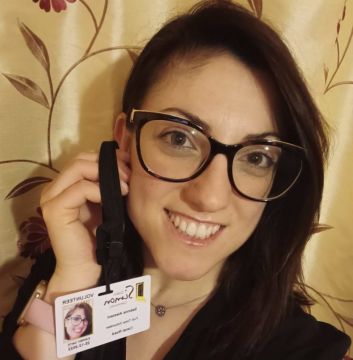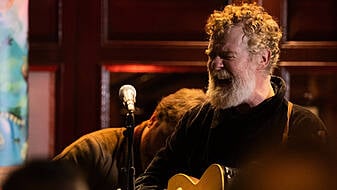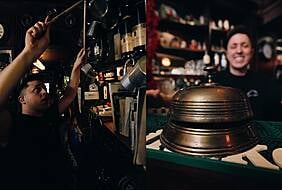The idea of the welfare state often draws negative connotations of ‘hand outs’ and ‘living off the State’, but for Italian Sabrina Alesiani, the concept fascinates her.
Having spent a year working in Brazil with vulnerable children and teenagers, Sabrina decided to come to Ireland as part of the European Solidarity Corps – which allows EU citizens travel to other EU states in order to work in areas that deal with societal challenges – in order to better understand how the welfare state works.
“I’m a social worker, so for me, the welfare state is the ultimate,” Sabrina says.
The initiative saw her join the Dublin Simon Community as a volunteer last August, working in the the medium-support housing service, where she says giving empowerment is the utmost goal.
“In our service, it’s important to recognise if the people are able to be autonomous in the future, because some people aren’t capable of that.”
Walking distance from an Outreach staff member 🚶♂️ 🗺
Our Outreach team will be out from 7am - 1am each day, please report anyone you see sleeping rough by calling 01 872 0185 or via the Rough Sleeper App. pic.twitter.com/84BMR4pjBSAdvertisement— Dublin Simon (@Dublin_Simon) March 10, 2022
Sabrina adds that much of her work is about helping the service users develop skills - from basics like learning to do the laundry, right up to handling medical matters – with the goal of enabling them to live more independent lives.
“It’s important to be delicate,” Sabrina says. “The unit is my place of work, but it’s their home.
“Over time, they begin to trust you, and for some people, you become like their family.”
Developing that level of trust is often difficult, Sabrina says: “You have to understand that these are often people who have had a difficult past”, adding it takes time and patience to build a relationship with the residents and understand how they have come to this point in their life.
“We just try to work with love and take care of the people.”
Since coming to Ireland, Sabrina has noticed how the issues of homelessness and addiction are closely linked here, making it all the more important that services take a holistic approach.
Sabrina feels the services which focus on socialisation are particularly important and beneficial: "The social activities are very important because they can give people empowerment.
It is the duty of every country to take care of its people.
“For people who are experiencing difficulties with homelessness or addition, social activities are often the first thing they need as it can give them a chance to share their story.
"All people needed social outlets.”
Having now observed the welfare state as work, Sabrina says she feels she was correct to believe in its merit, as “it is the duty of every country to take care of its people”.
However, she says it is vital that the system is designed to be one which gives power and autonomy to the people it seeks to uplift.
In practice, Sabrina says the most important thing she has learnt during her time with the Dublin Simon Community is to treat everyone with compassion.
“Dublin has showed me a totally new situation. From being here, I’ve learnt the importance of not judging people, trying to understand how they got to this point, and knowing what we can do to help.
“I’ve learnt to remember that every day, in front of you, you have a person. You have to treat them like a person and respect their dignity.”







